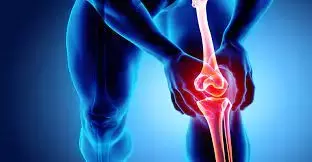- Home
- Medical news & Guidelines
- Anesthesiology
- Cardiology and CTVS
- Critical Care
- Dentistry
- Dermatology
- Diabetes and Endocrinology
- ENT
- Gastroenterology
- Medicine
- Nephrology
- Neurology
- Obstretics-Gynaecology
- Oncology
- Ophthalmology
- Orthopaedics
- Pediatrics-Neonatology
- Psychiatry
- Pulmonology
- Radiology
- Surgery
- Urology
- Laboratory Medicine
- Diet
- Nursing
- Paramedical
- Physiotherapy
- Health news
- Fact Check
- Bone Health Fact Check
- Brain Health Fact Check
- Cancer Related Fact Check
- Child Care Fact Check
- Dental and oral health fact check
- Diabetes and metabolic health fact check
- Diet and Nutrition Fact Check
- Eye and ENT Care Fact Check
- Fitness fact check
- Gut health fact check
- Heart health fact check
- Kidney health fact check
- Medical education fact check
- Men's health fact check
- Respiratory fact check
- Skin and hair care fact check
- Vaccine and Immunization fact check
- Women's health fact check
- AYUSH
- State News
- Andaman and Nicobar Islands
- Andhra Pradesh
- Arunachal Pradesh
- Assam
- Bihar
- Chandigarh
- Chattisgarh
- Dadra and Nagar Haveli
- Daman and Diu
- Delhi
- Goa
- Gujarat
- Haryana
- Himachal Pradesh
- Jammu & Kashmir
- Jharkhand
- Karnataka
- Kerala
- Ladakh
- Lakshadweep
- Madhya Pradesh
- Maharashtra
- Manipur
- Meghalaya
- Mizoram
- Nagaland
- Odisha
- Puducherry
- Punjab
- Rajasthan
- Sikkim
- Tamil Nadu
- Telangana
- Tripura
- Uttar Pradesh
- Uttrakhand
- West Bengal
- Medical Education
- Industry
lowering of BMI linked with slower worsening of knee osteoarthritis

Lowering body mass index (BMI) was linked with slower worsening of knee osteoarthritis suggests a recent study published in the Arthritis & Rheumatology
A study was conducted to define the association between change in body mass index (BMI) and the incidence and progression of the structural defects of knee osteoarthritis as assessed by radiography.
Radiographic analyses of knees at baseline and at 4 to 5 years of follow-up were obtained from three independent cohort studies: Osteoarthritis Initiative (OAI); Multicenter Osteoarthritis Study (MOST); and Cohort Hip and Cohort Knee (CHECK). Logistic regression analyses using generalised estimating equations, with clustering of both knees within individuals, were used to investigate the association between change in BMI from baseline to 4 to 5 years follow-up and the incidence and progression of knee osteoarthritis.
The results of the study are:
- A total of 9683 knees (from 5774 participants) in an 'incidence cohort' and 6075 knees (from 3988 participants) in a 'progression cohort' were investigated.
- Change in BMI was positively associated with both the incidence and progression of the structural defects of knee osteoarthritis.
- The adjusted odds ratio for incidence was 1.05 and for progression was 1.05
- Changes in BMI were also positively associated with degeneration (i.e., narrowing) of joint space and decline of the femoral and tibial surfaces (as indicated by osteophytes) on the medial but not on the lateral side of the knee.
Thus, BMI decrease is independently associated with lower odds of onset and progression of the structural defects of knee osteoarthritis and could be a component in preventing the onset or worsening of knee osteoarthritis.
Reference:
Zubeyir Salis et al. Decrease in body mass index is associated with reduced incidence and progression of the structural defects of knee osteoarthritis: a prospective multi-cohort study. 16 August 2022. https://doi.org/10.1002/art.42307
Keywords:
Zubeyir Salis, Blanca Gallego, Tuan V. Nguyen, Amanda Sainsbury, Decrease, body, mass, the index associated, reduced, incidence, progression, structural, defects, knee, osteoarthritis, prospective multi-cohort study
Dr. Shravani Dali has completed her BDS from Pravara institute of medical sciences, loni. Following which she extensively worked in the healthcare sector for 2+ years. She has been actively involved in writing blogs in field of health and wellness. Currently she is pursuing her Masters of public health-health administration from Tata institute of social sciences. She can be contacted at editorial@medicaldialogues.in.
Dr Kamal Kant Kohli-MBBS, DTCD- a chest specialist with more than 30 years of practice and a flair for writing clinical articles, Dr Kamal Kant Kohli joined Medical Dialogues as a Chief Editor of Medical News. Besides writing articles, as an editor, he proofreads and verifies all the medical content published on Medical Dialogues including those coming from journals, studies,medical conferences,guidelines etc. Email: drkohli@medicaldialogues.in. Contact no. 011-43720751


